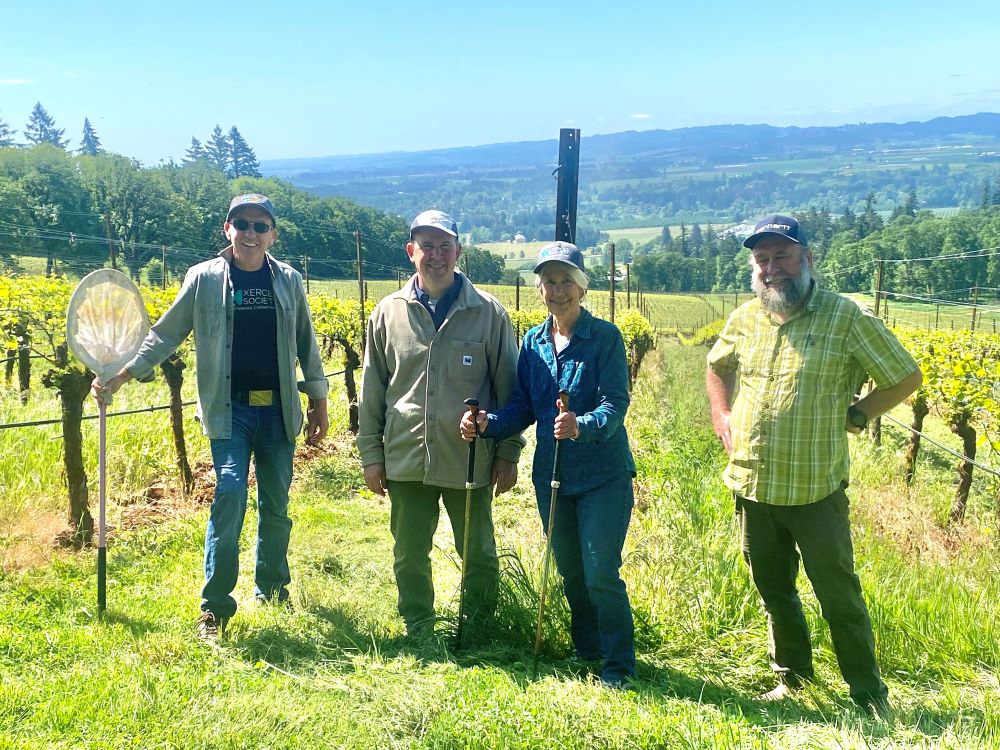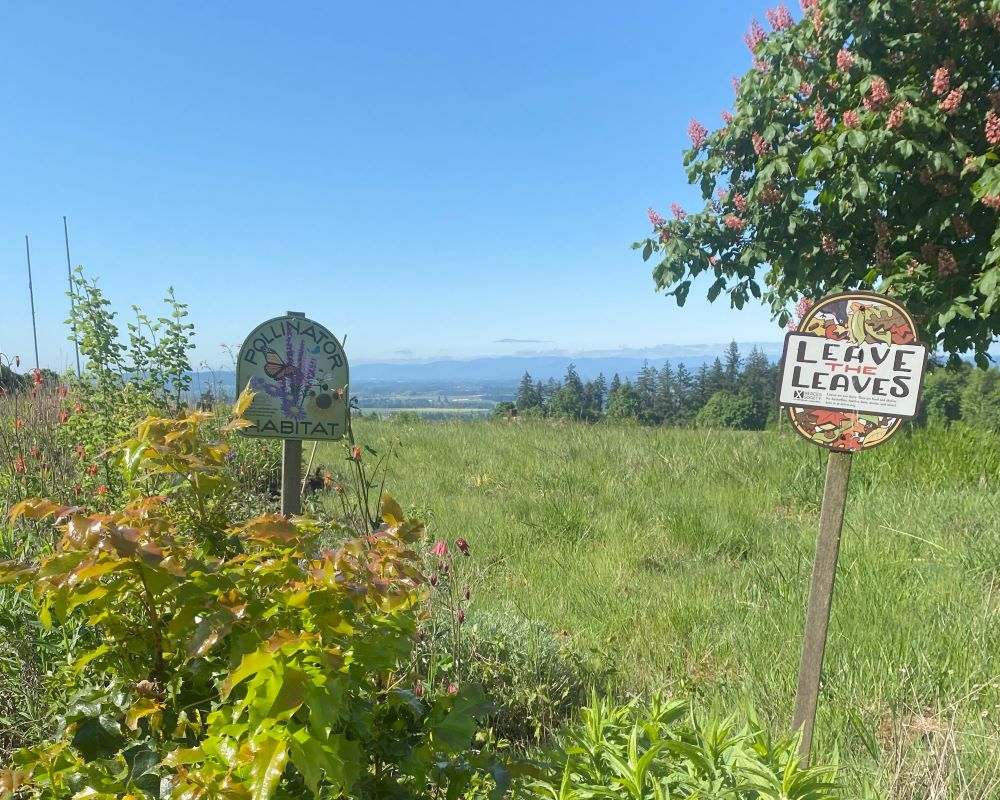When you visit Winter’s Hill Estate in the Dundee Hills of Oregon, you’re stepping into a place where family, farming, and conservation are deeply rooted. On a recent visit, I had the privilege of walking the land with long-time Xerces members Emily Gladhart and her son Russell, hearing their stories, touring the vineyard and forests, and witnessing firsthand the care and intention behind everything they do.
I was joined on this visit by Scott Black, executive director of the Xerces Society, and Corin Pease, a Xerces pollinator conservation specialist. Together, we spent the day exploring the thriving native habitat on the property and talking with Emily and Russell about their conservation goals. Our conversations centered on pollinator protection, soil health, and the expansion of hedgerows across the vineyard.
The Gladharts have been stewards of this land since 1961, when Emily’s parents moved from Chicago to Oregon and bought the original farm. Emily and Peter, Emily’s late husband, transformed the former fields of grass and crimson clover into a vineyard in 1990. At the time, they had no background in viticulture, only a willingness to learn and a belief in the land’s potential. That spirit of curiosity and commitment has guided them ever since.

Earlier this year, Peter passed away, and it was clear during our visit how much his presence is still felt. His thoughtful approach to grape growing, and his deep love for the land and his family, live on in the stories shared by Emily and Russell.
Now a third-generation operation, Winter’s Hill produces wine each year, including pinot noir, pinot blanc, pinot gris, and rosé. Their wines are available in their tasting room, through their wine club, and in shops and restaurants throughout Oregon and the Northwest. The Gladharts have made their winery not only a center for winemaking but also for conservation and community.
One of the most inspiring aspects of our visit was learning how the Gladharts care for the land beyond the vineyard rows. Over 50 acres of their 100-acre estate are devoted to oak savanna, managed forest, and pollinator habitat. Native plants like milkweed, Oregon grape, toughleaf iris, Douglas aster, and trillium provide essential food and shelter for bees, butterflies, and other wildlife. The family has worked with Xerces to expand their hedgerows and pollinator plantings and is pursuing Bee Better Certification while also working toward Oregon Tilth Organic Certification.

Even though grapes are wind pollinated, the Gladharts have long understood the broader role of pollinators in healthy ecosystems. They were early adopters of the Oregon Bee Project, even volunteering as a bee collection site for the Oregon Bee Atlas. They’ve taken additional steps toward sustainability by bottling some of their wines in reusable glass bottles and offering others in lightweight pouches, reducing the carbon footprint of their packaging.
Spending time with the Gladharts feels like visiting old friends. The vines, the native plants, and the people all seem to be working together toward something lasting. They have created a living legacy built on love for the land, rooted in family, and always growing.

